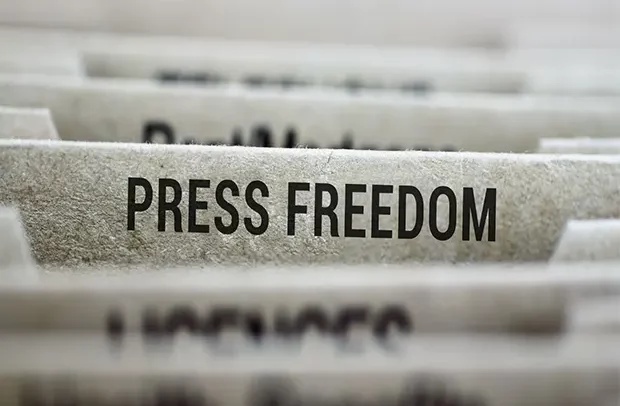A free press is the cornerstone of a democratic society. It is said that ‘liberty’ depends on the philosophy of a free press.
Press freedom is the credo that enables democracies all over the world to work to the core. A complete practice of free press maximises political, social and cultural and even, economic outcomes for citizens in society.
In essence, many liberal theorists have long argued that the existence of an autonomous and independent press within each nation is essential in the process of democratisation, by contributing towards the right of freedom of expression; thought and conscience; strengthening the responsiveness and accountability of governments and public offices holders to all; providing a pluralist platform and channel of political expression for interests.
Provisions for the freedom and independence of the media in Ghana are clearly stated in chapter 12, article 162 of the 1992 Fourth Republican Constitution of Ghana. These provisions among others are rooted in article 289 of the 1992 Constitution, meaning their alterations will demand several complexities, therefore, the Constitution has to a very large extent shielded the freedom and independence of the press in Ghana.
The media in Ghana is seen as some form of vigilante that guards against the pursuit of self-interest, nepotism, excessive power, and corrupt practices in national offices. Indeed, journalists help to promote the freedoms and rights of human beings, and the balance of power between rulers and the ruled.
The media in Ghana is gradually becoming an avenue for distractive practices. The irresponsibility, corruption, and excesses of the media breed and result in crisis and a chaotic society. Palpably, the misuse of the media like that of power can impede national development.
In Ghana today, the mass media has become an important ally in national issues yet, some of its practices are causing concern with some Ghanaians even developing the notion that “a free press is retarding the development of the country”.
In democratic societies, free and autonomous media is tasked to investigate and expose political and social corruption. The institution can also put pressure on relevant authorities to address the problem.
But this hasn’t always been the case. There are engagements as to whether media liberalisation and freedoms in Ghana instill the habit of powerful anti-corruption force.
The practitioners and the ownership structure of the institutions contribute to the emanating notion about the media.
In the course of exposing the corrupt individuals and entities in the societies that feed into the underdevelopment of the country, journalism should employ the investigative journalism technique more over the allegations and counter-allegations technique.
Undercover or investigative journalism has proven to be the Ghanaian media’s major weapon in the fight against corruption.
In Ghana’s 4th Republic, only a few people have been visible in the anti-corruption journalism field. Most media institutions or houses don’t have an investigative desk; an avenue many journalists see as a threshold where you have to battle your life around with parties involved in most corrupt cases. As a result, media reports always tend to rely on allegations and counter-allegations.
The safety of the media practitioner and the fact that it reserves the right to convey stories about any subject is overt in this era.
Nevertheless, the question remains for everyone in this country, “To what extent are the media free to discharge these uncontested rights?
Recently, media practitioners have become targets of the physical attacks and assaults in this country, and these have recorded unacceptable injuries and even deaths.
Journalists pursuing investigative journalism, can be harassed, or worse get killed.
In 2019 an investigative journalist, Ahmed Hussein-Suale, was murdered by some unidentified persons in Accra, just before he was due to surrender an evidence in a major football scam involving influential Ghanaians.
In 2015, Ghana was ranked 22nd on the 2015 World Press Freedom, which placed the country in the “free” category. In the year 2016, Ghana’s media freedom status worsened to 26th in the same ranking index.
Gradually, we are pressing hard on the institution that we’ve all established to check the government of the day.
To quote the words of the former president of the Ghana Journalist Association (GJA), Roland Affail Monney, “This is the cross we have decided to carry to help develop our country, so we should not deter the profession,” he stated.
It is another day to call for a free environment and unoppressed media landscape in our country.
By Emmanuella Akimbi Mbama


